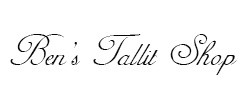When we ship to the US, our customers are never charged import taxes, but in most other countries we ship to, VAT and other taxes are definitely a salient issue. Sometimes customers will send a request, either before or after placing an order, asking us to modify the invoice and the customs declaration affixed to the parcel.
I know of a tallit seller whose customers are almost all in Europe. He told me he always declares a value under €22, because he "knows that's what his customers want." (By the way, those days are now over, because as of 1 Jul. 2021, no shipments to the European Union are exempt from VAT, even if the value is €1.)
Likewise, I know of a tefillin dealer who routinely lists the value at about 30% of the real value. He is also convinced that this is what his customers want and expect.
And indeed they may be right. However, our understanding is that this practice is quite problematic not only from a legal standpoint, but from a halachic standpoint as well.
Recently we received an inquiry from a customer in Belgium. His wife was set to travel from Israel back home to Belgium in a few days, and he asked if we could get tefillin made and shipped to her in Israel before she left the country. We were unable to make that happen, given the short notice. He then asked, if we were to ship the order to Europe, whether it would be possible to declare a low value on the tefillin, given the steep import taxes he would invariably have to pay in Belgium.
We consulted a prominent rabbi here in Modi'in Illit. The following is a list of issues that applied:
- Is the customs declaration a problem in terms of מדבר שקר תרחק (i.e. for the sender, not the recipient)?
- Do we need to be concerned for דינא דמלכותא דינא (i.e. in Belgium)
- If so, could the tefillin be considered גזול if the full VAT and customs is not paid?
- Do we need to be concerned regarding חשש חילול השם since occasionally a customs official may go into great detail?
All of the above are serious concerns. The bottom line was that he said he was unaware of a הוראת התר that would resolve all of the above issues. We urged the customer to discuss the above issues with a qualified rabbi in Belgium.
 United States Dollar
United States Dollar
 Shekel
Shekel
 Euro
Euro
 British Pound
British Pound
 Australian Dollar
Australian Dollar
 New Zealand Dollar
New Zealand Dollar
 Canadian Dollar
Canadian Dollar
